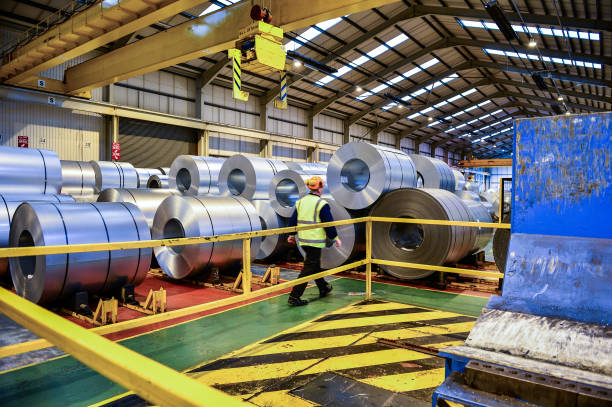27 Jul , 2022 By : Kanchan Joshi

Tata Steel Ltd’s better-than-expected performance in Europe in the June quarter (Q1FY23), buoyed by benefits from long-term contracts and a favourable product mix, is unlikely to continue. Tata Steel Europe’s Ebitda per tonne rose sequentially by $125 to $366 per tonne or Rs28,220 per tonne in Q1.
In a call on Tuesday, the management said that about 30% of contracts in Europe are annual, which won’t require a reset of prices soon. The company has renewed some of the remaining contracts so far and will renew the remainder henceforth. It expects pricing to be between spot prices and long-term contract prices.
“We believe the next round of contract renewals will happen at significantly lower prices as European hot rolled coil prices are down by almost 38% now versus April 2022 average," said analysts at Motilal Oswal Financial Services in a results flash note on 26 July.
Overall, Tata Steel expects the rest of the year to be challenging. The performance in Q2 would taper sequentially, given the lower realization, which may not be compensated by the fall in input prices. Also, the drop in costs of coking coal and iron ore would reflect in the financials with a lag, which means the benefit can be expected only in Q3.
But, on the bright side, the management expects volumes to be higher in Q2 versus Q1. It sees recovery in demand, especially in the automobile segment. Commercial vehicles require more steel and this bodes well as this segment is seeing a cyclical upturn. However, demand from the construction sector is expected to be muted with a seasonal slowdown in activity due to monsoons.
Meanwhile, the export duty levy on steel in India has hurt domestic performance in Q1. Standalone adjusted Ebitda per tonne dropped by Rs2,364, sequentially. The imposition of tax also resulted in an increase in working capital, which pushed net debt higher vs Q4FY22. With cost control measures and the expectation of demand revival, this is expected to normalize.
Going ahead, the potential removal of the export duty could act as a trigger for Tata Steel shares, which are about 38% lower than their 52-week highs. Even so, the benefits from this move may be limited as export demand remains sluggish. “If China accelerates pace of curtailments of steel production/exports, that could lead to reduction in oversupply of steel in global markets, which would provide a floor to steel spreads. This could positively impact investor sentiments," said Satyadeep Jain, an analyst at Ambit Capital.
0 Comment